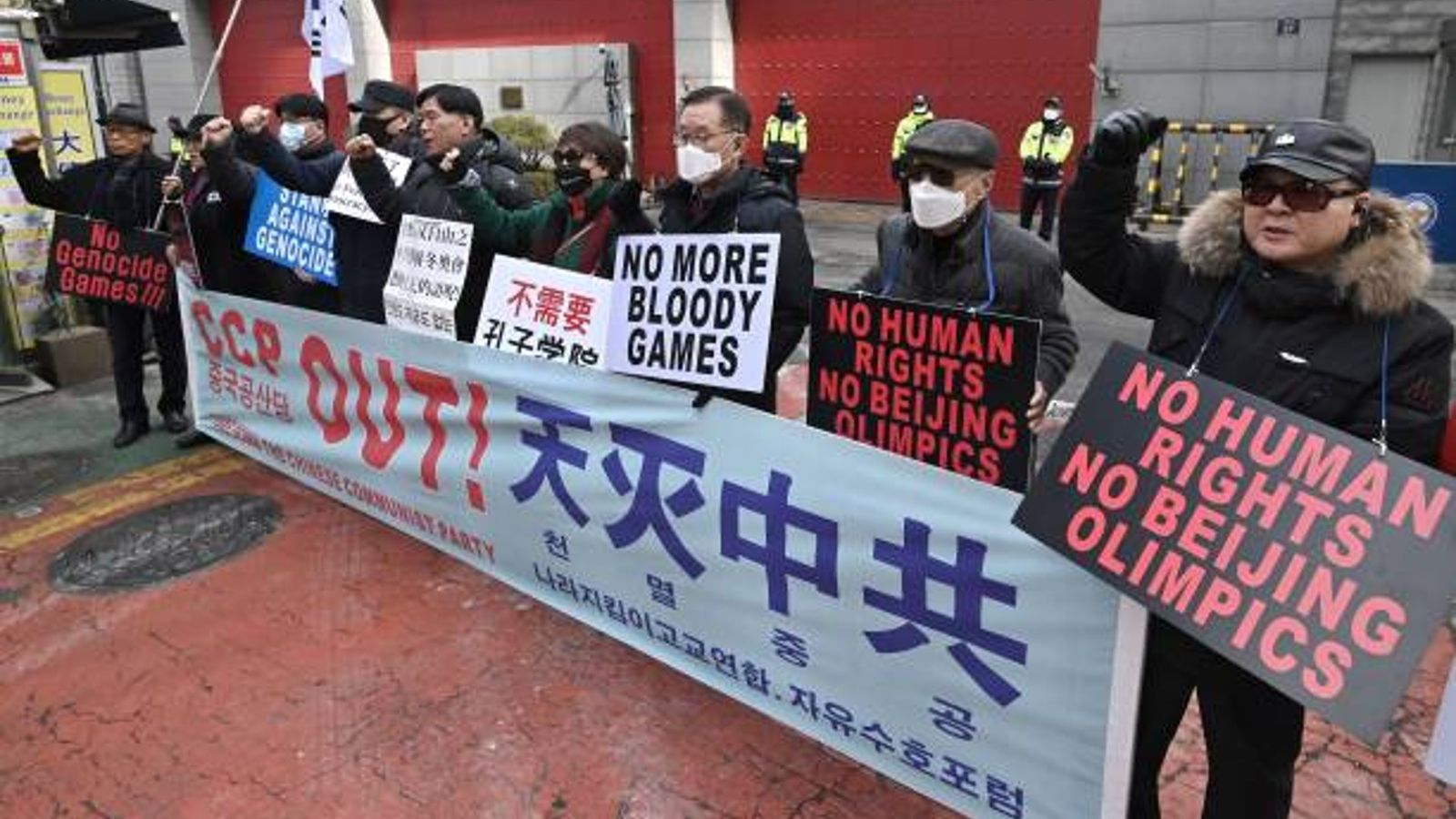As the glitzy Beijing Winter Olympics finally came to a close on Sunday (February 20), athletes came out in numbers to call out on the blatant violation of the human rights by the host nation China.
However, some athletes are being urged to avoid doing so until they leave the country over fears they could be prosecuted.
"I think it is extremely irresponsible to give it to a country that violates human rights as blatantly as the Chinese regime is doing. I really think it is terrible," the double Winter Olympic gold medallist Nils van der Poel criticises Beijing 2022.
Meanwhile, speed skater Nils van der Poel, twice a gold medallist in Beijing, also raised voice upon returning to his home in Sweden.
“The Olympics is a lot, it’s a fantastic sporting event where you unite the world and nations meet. But I think it is extremely irresponsible to give it to a country that violates human rights as blatantly as the Chinese regime is doing. I really think it’s terrible, but I think I shouldn’t say too much about it, because we still have a squad in China,” he said.
Also, China’s alleged mistreatment of its Muslim-majority Uyghur people and policies toward Tibet, Hong Kong and Taiwan have come under increased scrutiny amid the Olympics.
China also drew criticism following the near-total disappearance from public view of tennis player Peng Shuai. She wrote in a social media post that she was sexually assaulted by a former senior member of the ruling Communist Party.
Prior to the Games, Chinese officials warned athletes of “certain punishment” for “any behaviour or speeches that is against the Olympic spirit, especially against Chinese laws and regulations”.
Global Athlete, an advocacy group which helps athletes inspire change, last month warned there was “really not much protection” from Chinese laws for athletes who speak out.
When three-time Olympian Gus Kenworthy took the remarkable, perhaps even brave decision to speak out against "human rights atrocities" while still in China at the Winter Games, the self-proclaimed "loud and obnoxious" British skier also proved that other athletes, had they chosen, perhaps could have used their Olympic platform to pipe up, too.
Olympians with any qualms about chasing medals in a country accused of genocide against its Muslim Uyghur population and of other abuses kept their views on those topics to themselves for the durations of their stay. And perhaps for good reason: They faced vague but, as it turned out, undeployed Chinese threats of punishment, constant surveillance and the sobering example of tennis star Peng Shuai's difficulties after she voiced allegations of forced sex against a Communist Party official.
"We have seen an effective silencing of 2,800 athletes, and that's scary," said Noah Hoffman, a former U.S. Olympic skier and board member of the Global Athlete advocacy group pushing for Olympic reform.
Kenworthy, speaking before his 8th-place finish in the halfpipe final on the Games' penultimate day, laid out why.
"We're in China, so we play by China's rules. And China makes their rules as they go, and they certainly have the power to kind of do whatever they want: Hold an athlete, stop an athlete from leaving, stop an athlete from competing," he said.
Natalie Geisenberger, Germany’s luge champion who took home a sixth gold medal at these Games, went to Beijing having previously criticised China and even considered boycotting.
She refused to speak about the human rights issue during the Games.
“You have to be careful when you say what, and where you say it, and I think many are feeling this way. Here on location, I think it’s better not to say too much,” she said on February 8.
Having now returned to Germany, she said that she will never return to China.
Meanwhile, the Sport & Rights Alliance on Friday (February 18) requested a meeting with International Olympic Committee (IOC) President Thomas Bach to discuss what it said were human rights abuses at the Beijing Winter Games.
The Sport & Rights Alliance is a global coalition of non-governmental organizations that promotes human rights in sport.


